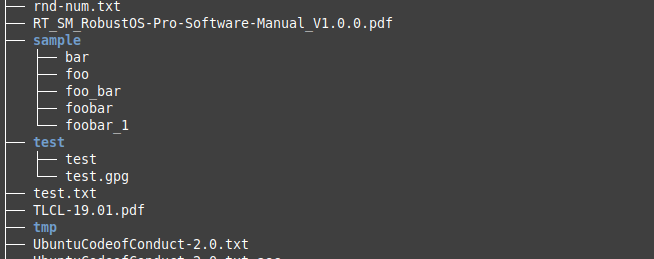Today we’re going to have a good time because we’re learning how you can have infinite Bash history. There’s a bit more to it and not all of you will want an infinite Bash history. But, for those that do, we’re going to accomplish that right here in this article!
First, I’m assuming you’re using Bash as your shell. The odds are really good that you’d know if you’re not using Bash, as Bash is pretty much the default. Bash is the interactive shell you’re using, known as Bourne Again Shell. If you don’t know what shell you’re using, I covered that in an article about determining the shell you’re using.
Side Note: I sometimes write articles that are meant to preface another article, but then I forget and don’t write the additional article. I suppose that helps keep things interesting…
So, as you know, when you type a command into the terminal that command is stored in a file typically called ~/.bash_history – a hidden file in your home directory. Well, there’s a limit to how much history that file will retain and this is Linux – meaning that, of course, you can change that value. Today, we’ll be changing that value – making it ‘infinite’.
No, of course, it’s not really infinite. There’s a finite amount of disk space you have. This being a plain text file, it takes up very little space. While it’s not technically infinite you can store a whole lot of entries in your Bash history. We’ll set it to infinite, but I’ll show you how to set it to any value you want.
Ready?
Infinite Bash History:
As you can see, this is a Bash thing. That’s a good sign that you’ll need an open terminal. You can press
With your terminal open, we’re going to edit another hidden file. The name of this file is .bashrc and it’s a file that stores things like terminal settings.
The tool we’ll be using is ‘nano‘. Click that link to learn about Nano, including how to install Nano should Nano not come preinstalled in your chosen distro. As you may know, Nano is one of my favorite text editors. We use Nano a lot around here.
Start with opening the ~/.bashrc file with nano, like so:
1 | nano ~/.bashrc |
Scroll to the bottom and add the following lines:
1 2 | #infinite history hack HISTFILESIZE=-1 |
Any negative value, in this case, -1, will result in an infinite history. However, you can make that value any number you want. When you’re done adding those lines, you have to save the file. Remember, to save a file in Nano, you just press
You could make the value 5000, for example. That’d simply look like this:
1 2 | #infinite history hack HISTFILESIZE=5000 |
The sky is the limit. You can make that value any number you want, but all negative values will be treated the same. If the value is negative, it means you’ve got an infinite Bash history. Don’t forget to save any changes with Nano, as instructed above.
Now, you could reboot or log out to make the new settings take effect, or you can simply tell your system to reload the file to make the changes take immediate effect. That’s an easy command, simply use:
1 | source ~/.bashrc |
As you can see, infinite isn’t infinite (nothing is in the real world, according to current observations) and you don’t have to choose the infinite setting. You can pick whatever numbers you fancy and the process is the same.
Closure:
There you go, you now know how to set up your system to have an infinite Bash history. Well, an infinite ~/.bash_history if you prefer. With that setting engaged, you’re limited only by your creativity, fanaticism, and disk space. Go nuts with it! They make bigger disks! (Also, it takes up very little space.)
Thanks for reading! If you want to help, or if the site has helped you, you can donate, register to help, write an article, or buy inexpensive hosting to start your site. If you scroll down, you can sign up for the newsletter, vote for the article, and comment.
